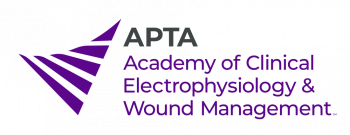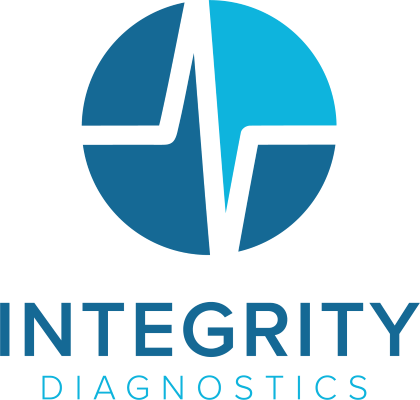Electrodiagnostics Special Interest Group

Help the Academy to provide tools, resources and education in our specialty. Donate today! 
The mission of the Electrodiagnostics Special Interest Group is to:
- Protect & defend PT practice in electrophysiological examination by advocacy in regulatory, legislative & reimbursement arenas,
- Promote high standards of practice via member involvement in ABPTS, and
- Promote growth in clinical EMG practice through support of education & training
The Electrodiagnosis Special Interest Group (EDX SIG) is free to members of the Academy and provides a forum where individuals interested in electrodiagnosis may meet, confer, and promote patient care through education, clinical practice and research, as well as multi-disciplinary dissemination of PT-based knowledge.
ChoosePT

It's Time to Thrive
Are you looking for a resource that describes "What is Clinical Electrophysiology in Physical Therapy?" ChoosePT has this tool available for you. Click on the link below to find out more. Don't forget to update your profile. Click HERE to update.
►Clinical Electrophysiology in Physical Therapy
ENMG Symposium 2024 - March 22-23
The Annual Electroneuromyographic Symposium is designed specifically for healthcare providers that specialize in electroneuromyography (ENMG). Invited speakers (researchers, educators, and clinicians) are given a forum to present original research, topic reviews, and case reports. Either the full article or abstract is published in The Proceedings.
13.5 contact hours will be awarded for full attendance to both days. Of these hours, 9.75 hours are related to differential diagnosis.
For details, discounts and speaker agenda, please click HERE.
Interested in Specialization in Electrodiagnostics?
ECS Specialist Certification
The American Physical Therapy Association (APTA), a national professional organization representing more than 66,000 members throughout the United States, established the specialist certification program in 1978. Specialization is the process by which a physical therapist builds on a broad base of professional education and practice to develop a greater depth of knowledge and skills related to a particular area of practice.
Application forms and information are available at www.abpts.org. If you need additional information contact the Specialist Certification Program by phone at 800/999-2782, ext 8520; or by e-mail at spec-cert@apta.org.
Position Statement
The American Congress of Electroneuromyography (ACE) and the Academy of Clinical Electrophysiology and Wound Management (ACEWM) have developed a position statement on the minimum standards of performance and interpretation of electromyography (EMG) and nerve conduction studies (NCS). The position statement has recently been reviewed and approved by the American Physical Therapy Association.
Educational Guidelines
The purpose of these guidelines is to identify the student-oriented educational objectives that are recommended in the areas of electrophysiological examination and evaluation for the preparation of students in professional physical therapist educational programs.
We also have a list of individuals who are willing to be contracted by physical therapy educational programs to teach clinical electromyography and nerve conduction studies content. Please feel free to contact them directly.
Electrodiagnostic Laboratory Accreditation Program
The Federation of Clinical Electrophysiology, an organization made up of the three national organizations (the American Academy of Clinical Electrodiagnosis, the Academy of Clinical Electrophysiology and Wound Management of the APTA, and the American Congress of Electroneuromyography), is pleased to announce the opening of the Electrodiagnostic Laboratory Accreditation program.
The Federation of Electrodiagnostic Laboratory Accreditation was formed to recognize electrodiagnostic labs that meet high levels of quality, patient safety, and follow accepted standards of care in electrodiagnostics. The process of electrodiagnostic laboratory accreditation is voluntary but strongly encouraged. Accredited labs demonstrate to the public, referral sources, and to third party payers that electrodiagnostic studies are performed with the highest standards and patient safety in mind.
There is currently a move to require each electrodiagnostic laboratory to demonstrate competency through accreditation. This accreditation process is already established in facilities that provide advanced diagnostic imaging services. Advanced diagnostic imaging facilities must be accredited in order to bill CMS for services. It seems natural that this accreditation trend may soon involve electrodiagnostic labs. A lack of an accreditation status may affect insurance reimbursement and referral sources in the future.



